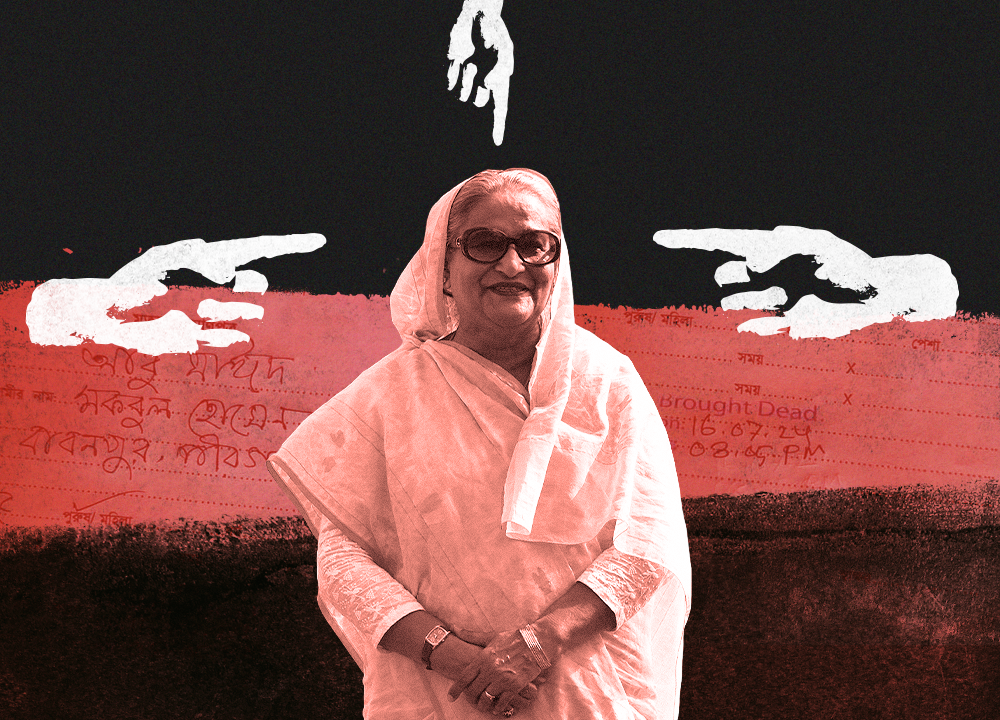UN must lead charge for justice in Bangladesh
Prime Minister Sheikh Hasina and her Awami League government have long operated with impunity. This time, there must be accountability.

Prime Minister Sheikh Hasina, with her practised look of feigned sorrow, posed before shattered glass in government-released photos. Noticeably absent were the brutalised, broken bodies—the innocent lives destroyed by the Awami League government, now erased from its narrative.
Hasina and her Awami League cronies have stuck to their rehearsed crisis management script: abdicate responsibility, blame the opposition, promise investigations and punishment, and lament property damage.
A regime that values property over lives cannot be trusted to investigate the loss of life. A government that maims and kills its own citizens with impunity can never hold itself accountable. A government that lies, as evidenced by its disinformation during the internet blackout amid the protests, cannot and will not reveal the truth about its rampant human rights violations.
Hasina, the Awami League, its student wings, and law enforcement believe themselves untouchable. Within Bangladesh, this belief is a grim reality. They dictate the truth, and demands for rights and justice have consistently fallen on deaf ears. The only way to expose their lies is outside Bangladesh. Thankfully, there is a mechanism to do this without compromising Bangladesh’s sovereignty.
After Jina Mahsa Amini’s death in 2022 , the UN Human Rights Council was pressured to investigate the protests in Iran. The mandate included thoroughly investigating violations, establishing facts, collecting and preserving evidence for future legal proceedings, and engaging with relevant stakeholders.
Abu Sayeed stood defiantly against state terror, exercising his right to protest. He was gunned down by police, his death captured on video. The officers who shot him, their superiors, and the Awami League leaders who orchestrated this strategy of violent suppression remain free and unscathed. Countless acts of similar state-sponsored killings demand accountability.
But this will never happen under the Awami League’s watch. An independent UN Human Rights Council investigation is crucial. The UN has an even greater obligation since its peacekeeping equipment was used in the massacre — by those it will call on as peacekeepers in faraway lands.
Young protesters in Bangladesh have raised the alarm. It is now up to Bangladeshis, at home and abroad, especially the ones abroad who have a degree of security that those at home do not, and human rights organisations worldwide to pressure the UN into mandating such an investigation.
Accountability and justice must finally prevail.